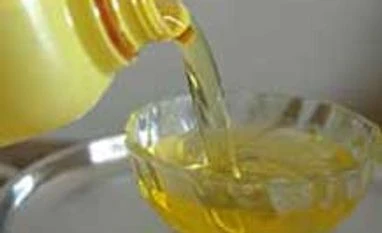The ministry of agriculture has recommended for increasing the import duty on refined oil. As per the proposal, the ministry has suggested to increase the import duty from existing rate of 7.5% on imported refined edible oil to 10%.
This will make import of refined edible oil expensive in comparison to the crude edible oil. These recommendations will be placed before the cabinet committee.
At present, the imported cost of refined edible oil is cheaper than importing crude oil due to inverted duty structure adopted by exporting countries like Indonesia and Malaysia.
Reportedly, Since October 2011, in the exporting countries the export tax on crude palm oil export is much higher than refined oil. The export duty rates are changed each month in line with market prices of palm oil. Higher the palm oil prices, higher is the export duty, and consequently higher is the difference between export tax on crude palm oil and refined palm oil / palmolein, explained industry sources.
Due to such inverted duty structure, the differential between the Crude palm oil (CPO) and Refined Palmolein which was around $90-100 pmt stands currently only at around US$10 -20pmt. Therefore the Indian traders are favouring import of refined edible oil rather than importing crude oil and then refining it for selling in the domestic market.
On the other hand, in January 2013, the government imposed a duty of 2.5% on CPO from zero import duty earlier, thereby lowering the duty differential between imported and refined palm oil to five% from earlier 7.5 %. In May 2013, the proportion of refined oil to India's vegetable oil imports rose to a staggering 42%, compared with just 16% in March, according to data compiled by the Solvent Extractors' Association (SEA).
Meanwhile, the share of crude oil in the overall imported vegetable oil basket declined from 84% two months ago to 58%. Currently, domestic edible oil crushing and refining units are operating at 30-35% capacity, against about 50% a year ago, industry sources said.
This will make import of refined edible oil expensive in comparison to the crude edible oil. These recommendations will be placed before the cabinet committee.
At present, the imported cost of refined edible oil is cheaper than importing crude oil due to inverted duty structure adopted by exporting countries like Indonesia and Malaysia.
More From This Section
These countries have imposed tariff on export of crude edible oil to encourage export of refined edible oil and thus incentivise the domestic edible oil refining in their respective countries - Indonesia and Malaysia.
Reportedly, Since October 2011, in the exporting countries the export tax on crude palm oil export is much higher than refined oil. The export duty rates are changed each month in line with market prices of palm oil. Higher the palm oil prices, higher is the export duty, and consequently higher is the difference between export tax on crude palm oil and refined palm oil / palmolein, explained industry sources.
Due to such inverted duty structure, the differential between the Crude palm oil (CPO) and Refined Palmolein which was around $90-100 pmt stands currently only at around US$10 -20pmt. Therefore the Indian traders are favouring import of refined edible oil rather than importing crude oil and then refining it for selling in the domestic market.
On the other hand, in January 2013, the government imposed a duty of 2.5% on CPO from zero import duty earlier, thereby lowering the duty differential between imported and refined palm oil to five% from earlier 7.5 %. In May 2013, the proportion of refined oil to India's vegetable oil imports rose to a staggering 42%, compared with just 16% in March, according to data compiled by the Solvent Extractors' Association (SEA).
Meanwhile, the share of crude oil in the overall imported vegetable oil basket declined from 84% two months ago to 58%. Currently, domestic edible oil crushing and refining units are operating at 30-35% capacity, against about 50% a year ago, industry sources said.
)